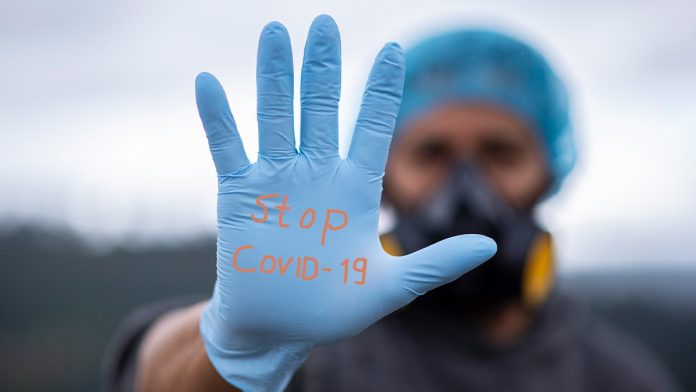The Impact of Technological Advancements in Fighting the Coronavirus Pandemic
The coronavirus pandemic has truly turned our lives upside down, changing how we work, study, and interact in every way. The global health crisis has tested every government’s ability to cope with the healthcare necessities and technological requirements to control the virus and save lives. Whilst some of these applications have been scrambled together in a few weeks, many of these technological advancements existed before these times but have never been more critical. Technologies, such as Big Data, IoT, and Artificial Intelligence have proved their value when they were needed most.
1. Big Data Track and Trace
Big Data has become somewhat of a buzzword in the last few weeks as a means to combat the rapid spread of Covid-19. Since Mid-March, the World Health Organization has actively spoken out about the importance of widespread testing and tracing to combat the virus. Gathering this data on a national scale is the best way to ensure this information has the most power to do good. Whilst some countries such as Germany, South Korea, Hong Kong, New Zealand, and Canada mounted an early response to initiate track and trace regimes, others were slower on the uptake.
These responses are often two-fold:
- Anonymous tracking of groups of people to gain an aggregated overview of mobility patterns, and
- Specific tracking of those with symptoms or a positive test result.
In the first scenario, using Artificial Intelligence, these systems can draw out trends in mobility data to predict possible epicenters of the virus and alert those in these areas of the possible risk.
In the second scenario, a more targeted tracking response, once you report symptoms or receive a positive test result, those who have downloaded the specific track and trace apps can be identified and monitored. The app can then automatically identify those who you may have come into contact with in the days preceding your contraction of the virus. This data is incredibly valuable to halt the spread of the virus, making people aware of their risk level even when they may be asymptomatic.
The UK has been criticized for its poor implementation of a nationwide track and trace system with it only being released this week, 9 weeks after lockdown began. The slow uptake to implement some of these technologies to fight Covid-19 has been extremely detrimental.
2. AI and IoT for Disease Identification
We have seen in many countries the difficulties of implementing nationwide testing. This is where companies have created innovative AI and IoT smart solutions to detect possible cases of the virus. Smart cameras with built-in facial recognition technology and temperature detection software can detect fever and possible breathing irregularities, common symptoms of the virus.
Movistar has installed temperature detection software in its retail locations to ensure safe reopening practices in the coming weeks. Smart IoT devices can also be built into PPE to identify in real-time if the individual’s temperature rises above a safe level.
3. Disease Treatment
Using AI algorithms and its computing power, Google’s DeepMind division published the findings to develop treatments. Benevolent AI uses Artificial intelligence systems to build drugs for severe disease treatments and they are helping the efforts to treat coronavirus. Within weeks of the outbreak, it used its predictive capabilities to suggest existing medicines that might be helpful.
4. Robotic Hospital Assistance
Processing patients in hospitals is a time-consuming process which can be critical. This is why hospitals around the world are taking advantage of smart robotics to fill the spaces due to staff shortages and increased admittance. In China, robots were mobilized to deliver medicine across the hospital, clean, and process admittance procedures. Since robots cannot contract the virus themselves, there is no risk when interacting with patients.
5. Remote Healthcare
Due to the crisis, doctors are starting to innovate their services due to necessity. Now that patients cannot be seen in person, you must reach them through other means, and this is where healthcare has had to innovate. Healthcare is a sector that as often lagged behind other sectors in terms of digitalization due to strict regulations. For the first time for many practices, people are able to receive remote care through video conferencing and applications. These applications make use of AI-powered chatbots and diagnosis tools to get to the bottom of your conditions. AI is not a threat to the medical profession; it is a doctor’s best assistant.
FAQ
1. What is the role of Big Data in combating the spread of Covid-19?
Big Data plays a crucial role in tracking and tracing the spread of the virus by analyzing mobility patterns and identifying potential risk areas.
2. How can AI and IoT be used for disease identification?
AI and IoT technologies can be utilized to detect symptoms such as fever and breathing irregularities through smart cameras and temperature detection software.
3. How are robotic hospital assistants helping during the pandemic?
Robotic hospital assistants are being used to deliver medicine, clean hospital facilities, and assist in admittance procedures, reducing the risk of virus transmission.
Conclusion
The coronavirus pandemic has highlighted the importance of technological advancements in healthcare and disease control. From Big Data analytics to AI-driven treatments and robotic assistance, these technologies have proven to be invaluable in the fight against Covid-19. As we navigate through these challenging times, it is essential for governments and healthcare organizations to continue investing in and leveraging these technologies to safeguard public health and save lives.
To keep up to date with Telefónica’s Internet of Things area, visit our website or follow us on Twitter, LinkedIn y YouTube.


